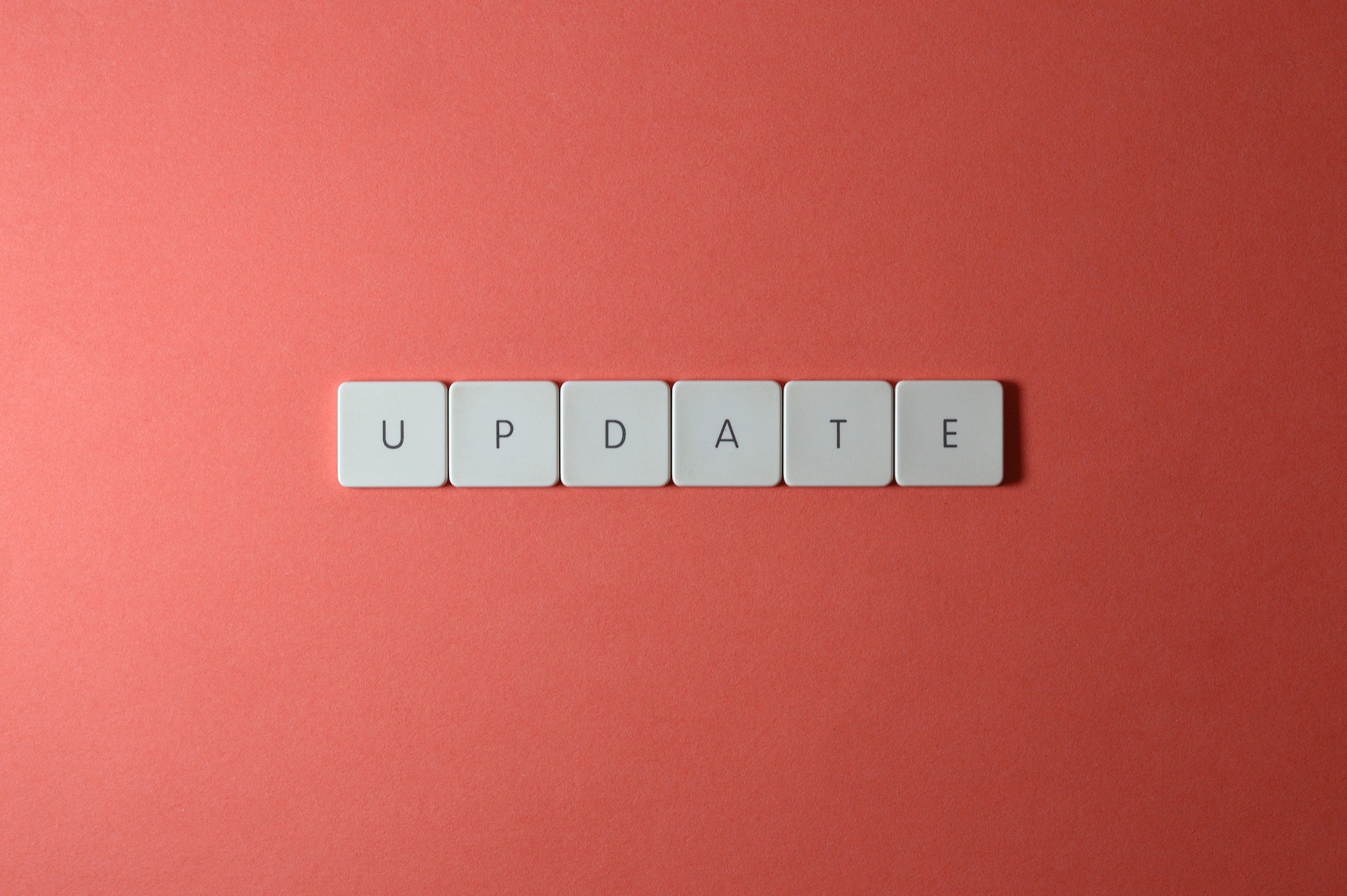Typically, credit scores and credit reports are updated at least once a month. However, this may vary depending on each consumer’s financial situation, the creditor’s reporting schedule, or the credit bureau’s update process. The information found on credit reports is important because lenders use that data to make qualifying decisions. The three major credit bureaus collect financial information to calculate a credit score.
Keep reading to learn why and how credit scores change and how you can check your credit score!
How Often Are Credit Scores Updated?
Your credit score is not static because it is constantly changing based on your recent financial activity. Experian, Equifax, and TransUnion collect information from financial institutions to generate a credit score based on credit scoring models. But how often do credit scores update?
A credit score update occurs when lenders or credit card companies report your financial information to at least one of the three main credit bureaus. Credit reports must be updated first for your credit score to reflect your recent activity. Most credit scores update once a month, but the time frame varies depending on your creditors.
There is no set date for financial institutions to report information to the three bureaus. Keep in mind that some creditors do not report information at all. Financial institutions have to pay to report information to any of the three credit bureaus. The cost can deter lenders from working with credit reporting agencies.
Working with a lender that does not report information can be beneficial in certain instances. Suppose you are late on a car payment. If the lender does not report your data, a late payment will not hurt your credit health or appear on your credit report! However, on-time payments will also not reflect positively on your credit score.
Factors Influencing the Frequency of Credit Score Updates
| Factor | Description | Impact on Frequency |
| Credit Reporting | Creditors report to bureaus at different times, typically after a billing cycle closes. | Varies; often monthly. |
| Credit Bureau Update Cycle | Each bureau updates its records upon receiving new information. | Varies; no set schedule. |
| Type of Credit Activity | Different activities (e.g., payment, credit inquiry) may be reported at different times. | Varies; based on activity. |
| Disputed Information | Updates occur after disputes are resolved, which can take up to 30 days or more. | After dispute resolution. |
| Major Financial Changes | Significant changes like paying off debt or defaulting can be reported quickly. | As reported by creditors. |
| Credit Scoring Model | FICO, VantageScore, and other models may update scores differently based on the data received. | As data is processed. |
| Credit Monitoring Services | These services can provide more frequent updates and alerts. | As they receive new data. |
| Consumer Actions | Checking credit scores, which is a soft inquiry, does not affect the update frequency. | No direct impact. |
| Credit Application | Applying for new credit triggers a hard inquiry. Which will be reported and can affect the score. | After lenders report. |
| Credit Utilization | High utilization reported by creditors can change scores once updated. | After creditor reports. |
| Payment History | On-time or late payments affect scores once reported by creditors. | After the billing cycle. |
| Closure of Credit Accounts | Closing an account can affect scores once reported by creditors. | After creditor reports. |
| Opening of Credit Accounts | Opening a new account will affect your score once it’s reported by the creditor. | After creditor reports. |
| Credit Limit Changes | Like credit card balances, increases or decreases in credit limits can affect scores once reported. | After creditor reports. |
| Personal Information Updates | Changes in personal information (e.g., address, name) do not affect credit scores. | Not applicable. |
Ranges of Credit Scores
Credit scores are a numerical representation of your financial history. A credit score typically falls between 300 and 850 points. Consumers with high credit scores get access to the best personal loan terms because they demonstrate financial responsibility. On the other hand, consumers with low scores will face more challenges.
There are five different credit score ranges that your score can fall into. Knowing where your score falls on the numerical scale can help you better understand your financial position.
- Poor (300 – 579) – Consumers will find getting installment loans or credit accounts challenging
- Fair (580 – 669) – Consumers with a fair credit rating may qualify for subprime options
- Good (670 – 739) – Consumers with a good credit rating are typically deemed capable borrowers by most lenders
- Very Good (740 – 799) – Consumers with a good credit history rarely miss a monthly payment
- Excellent (800 – 850) – Consumers have no late payments and demonstrate a superior credit history
How Often Should I Check My Credit Score?
Unfortunately, 23% of Americans don’t know their credit score!1 Since credit scores frequently change, checking your credit score now and then is a good idea. According to the Consumer Financial Protection Bureau, consumers should check their credit scores at least once a year; however, checking it more often (about once a month) may help you if you are on a credit-building journey.
Are you trying to build credit as a millennial? In that case, you should check your credit score frequently to track your progress. The best way to improve your credit over time is to avoid late payments on your monthly bills. A single missed payment can decrease a FICO score as soon as creditors report the incident. Late payments will also stay on your credit report for up to seven years. However, a long history of on-time payments can significantly increase your credit rating!
A credit monitoring service could help you keep track of your credit score changes. Credit monitoring services charge consumers a monthly fee to monitor credit reports and alert any changes via text message, email, or phone call. While credit monitoring services are convenient, you can always check your credit reports on your own to avoid paying a fee.
How Can I Check My Credit Score for Free?
There are three main ways you can check your current credit score. You can check your credit card account, visit a nonprofit credit counselor, or use a free credit scoring site.
Check Your Credit Card Account
Each major credit card issuer provides cardholders with the ability to view credit scores for free. Log onto your credit card account online and explore your dashboard. You can usually expect to get free FICO scores, although some creditors offer VantageScore 3.0 instead. However, FICO scores are used in 90% of lending decisions.2 You can keep a daily eye on your credit score if you want!
Visit a Nonprofit Credit Counselor
A nonprofit credit counselor can review your finances and provide credit monitoring. Credit counselors can improve your credit by helping you take control of your finances, pay off payday loan organizations, and more. You can increase your credit over time when working towards a financial goal. The National Foundation for Credit Counseling (NFCC) is one of the oldest, trusted nonprofit financial counseling agencies.
Use a Free Credit Scoring Site
Plenty of legitimate online sites provide free credit scores to consumers. However, ensure the website is legitimate before providing any personal information. Your information is encrypted if the website URL begins with “HTTPS” and has a lock icon. Credit Karma is one of the best websites to stay up to date on your Equifax or TransUnion credit report.
Does Checking Credit Scores Lower My Credit Rating?
Checking your credit does not negatively affect your credit. Looking at your credit is known as a soft credit check. Soft credit checks, or soft inquiries, do not decrease your credit score. Your credit is only affected when a financial institution or business does a hard credit check. A hard credit check is attached to an application for credit or housing, so it temporarily lowers your score by about five points. Hard credit checks also appear and remain on your credit reports for up to two years.
What Factors Affect Credit Scores?
Knowing why credit scores go up and down when they update can help you boost your credit score over time. There are five key factors that affect credit scores: payment history, total debt, length of credit history, inquiries, and credit mix. Each primary factor counts for a small percentage of your total credit calculation. The five factors are shown below in order of importance.
- Payment History (35%)
- Total Debt (30%)
- Length of Credit History (15%)
- New Credit Inquiries (10%)
- Credit Mix (10%)
FAQ: Credit Profiles
Credit scores are not updated on a specific day or time. They are updated when the credit reporting agencies receive new information from creditors, which can occur at various times throughout the month.
No, all credit reporting agencies do not update scores simultaneously. Each bureau has its own schedule for updating scores, which depends on when they receive new data from creditors.
Changes in credit typically reflect in your score within one billing cycle, although it can take up to 45 days, depending on the creditor’s reporting frequency and the bureau’s update cycle.
You cannot request an instant update of your credit profile. Updates are based on the credit bureaus’ schedules and the reporting patterns of creditors.
Paying off debts will not immediately update your credit profile. The update will occur once the creditor reports the payoff to the credit reporting agencies, which usually happens within their next reporting cycle.
There are no specific actions that guarantee a quick update of credit. Updates are dependent on the creditors’ reporting schedules and the credit bureaus’ processing times.
A change in your financial situation affects your credit profile update once it is reported by creditors to the credit reporting agencies, which can vary in time but typically occurs within a month or two.
The frequency of credit updates is determined by the credit bureaus and the reporting practices of the creditors. There is no single entity that sets a standard for all updates.
Lenders, landlords, insurance companies, and other authorized entities can access your updated credit with your permission for purposes like loan applications, housing rentals, or insurance policies.
If your credit hasn’t been updated for a long time, you should contact each credit bureau directly to inquire about the frequency of updates and whether they have received recent information from your creditors.
Consumers who are actively seeking loans, managing their credit, or monitoring for identity theft benefit from frequent credit updates as they provide them with current information about their credit standing.
Credit reporting agencies are responsible for tracking changes in credit scores. They compile information reported by creditors and update credit scores accordingly.
Individuals applying for credit, loans, or those in the process of credit repair might be affected by delays in updating credit scores as it could impact their ability to obtain credit or favorable terms.
The credit bureaus (Experian, Equifax, and TransUnion) are tasked with providing the most accurate and up-to-date credit information based on the data they collect.
Always correct errors on your credit report as soon as you notice them. If there are errors in your credit report between updates, your credit may be inaccurately represented. You have the right to dispute errors with the credit reporting agencies, who are obligated to investigate and correct any inaccuracies.
If no new information is added to your credit report, your credit will likely remain unchanged until new activity is reported by creditors. Delays in the updating of a credit profile can be caused by creditors reporting information less frequently, errors in data transmission, or the credit bureaus’ processing times.
A Word From CreditNinja Regarding How Credit Scores Change / Are Updated
Credit scores get updated when financial institutions submit information to credit reporting agencies about your activity. There is no timeline for lenders to provide updates, but many financial institutions provide information at least once a month. If you are trying to improve your credit, CreditNinja wants everyone to know that free sources are available to track credit score updates.
CreditNinja also offers free articles, debt calculators, and other resources to help consumers navigate their finances, improve their credit, and more!
References:
1. Survey finds 23% of Americans don’t know their credit score. Here’s how to check yours | WGME
2. Constantly checking your credit score? Here’s how often it updates | CNBC
3. How Often Does Your Credit Score Update?│Equifax
4. What Is a Rapid Rescore?│Experian






